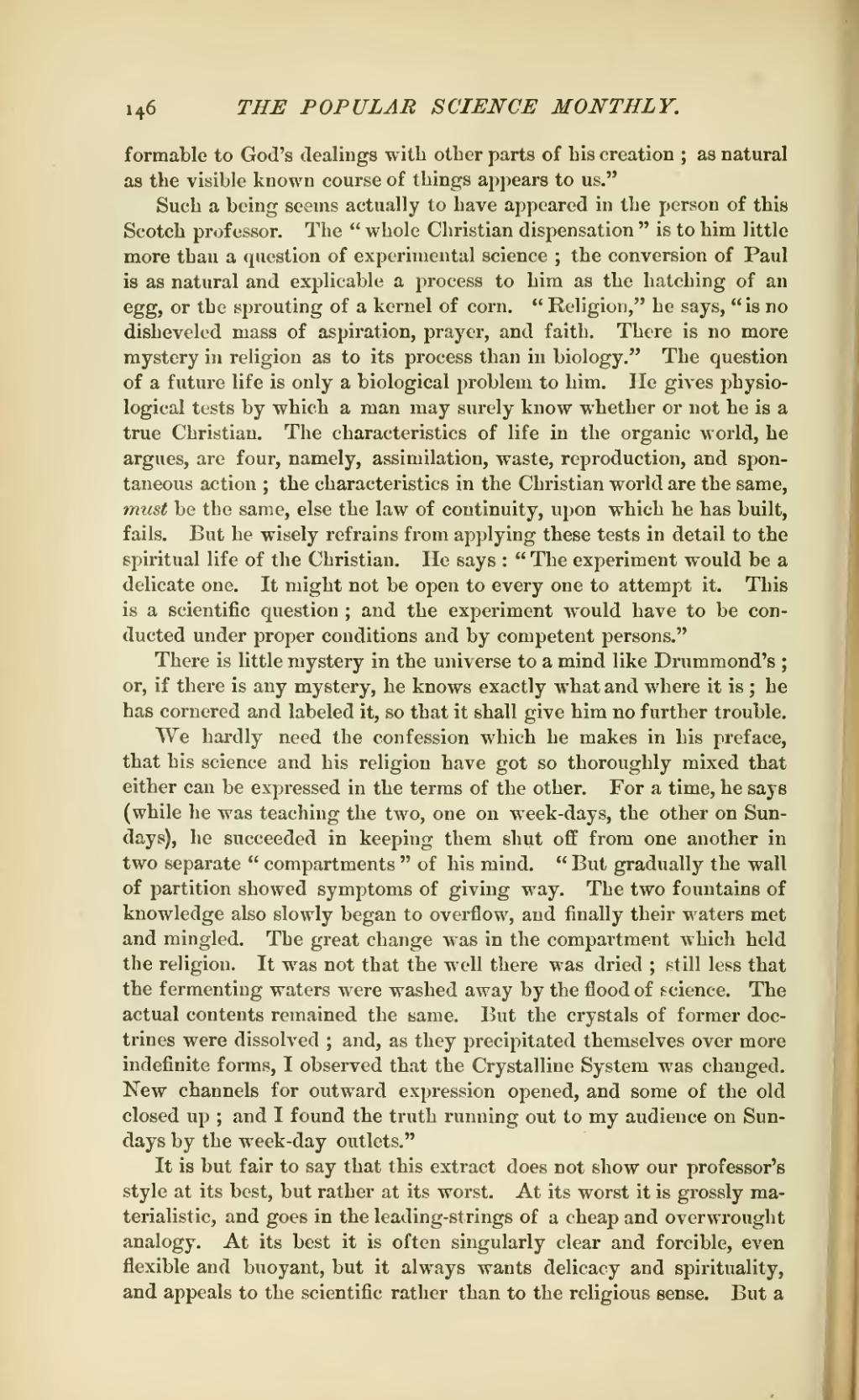formable to God's dealings with other parts of his creation; as natural as the visible known course of things appears to us."
Such a being seems actually to have appeared in the person of this Scotch professor. The "whole Christian dispensation" is to him little more than a question of experimental science; the conversion of Paul is as natural and explicable a process to him as the hatching of an egg, or the sprouting of a kernel of corn. "Religion," he says, "is no disheveled mass of aspiration, prayer, and faith. There is no more mystery in religion as to its process than in biology." The question of a future life is only a biological problem to him. He gives physiological tests by which a man may surely know whether or not he is a true Christian. The characteristics of life in the organic world, he argues, are four, namely, assimilation, waste, reproduction, and spontaneous action; the characteristics in the Christian world are the same, must be the same, else the law of continuity, upon which he has built, fails. But he wisely refrains from applying these tests in detail to the spiritual life of the Christian. He says: "The experiment would be a delicate one. It might not be open to every one to attempt it. This is a scientific question; and the experiment would have to be conducted under proper conditions and by competent persons."
There is little mystery in the universe to a mind like Drummond's; or, if there is any mystery, he knows exactly what and where it is; he has cornered and labeled it, so that it shall give him no further trouble.
We hardly need the confession which he makes in his preface, that his science and his religion have got so thoroughly mixed that either can be expressed in the terms of the other. For a time, he says (while he was teaching the two, one on week-days, the other on Sundays), he succeeded in keeping them shut off from one another in two separate "compartments" of his mind. "But gradually the wall of partition showed symptoms of giving way. The two fountains of knowledge also slowly began to overflow, and finally their waters met and mingled. The great change was in the compartment which held the religion. It was not that the well there was dried; still less that the fermenting waters were washed away by the flood of science. The actual contents remained the same. But the crystals of former doctrines were dissolved; and, as they precipitated themselves over more indefinite forms, I observed that the Crystalline System was changed. New channels for outward expression opened, and some of the old closed up; and I found the truth running out to my audience on Sundays by the week-day outlets."
It is but fair to say that this extract does not show our professor's style at its best, but rather at its worst. At its worst it is grossly materialistic, and goes in the leading-strings of a cheap and overwrought analogy. At its best it is often singularly clear and forcible, even flexible and buoyant, but it always wants delicacy and spirituality, and appeals to the scientific rather than to the religious sense. But a

